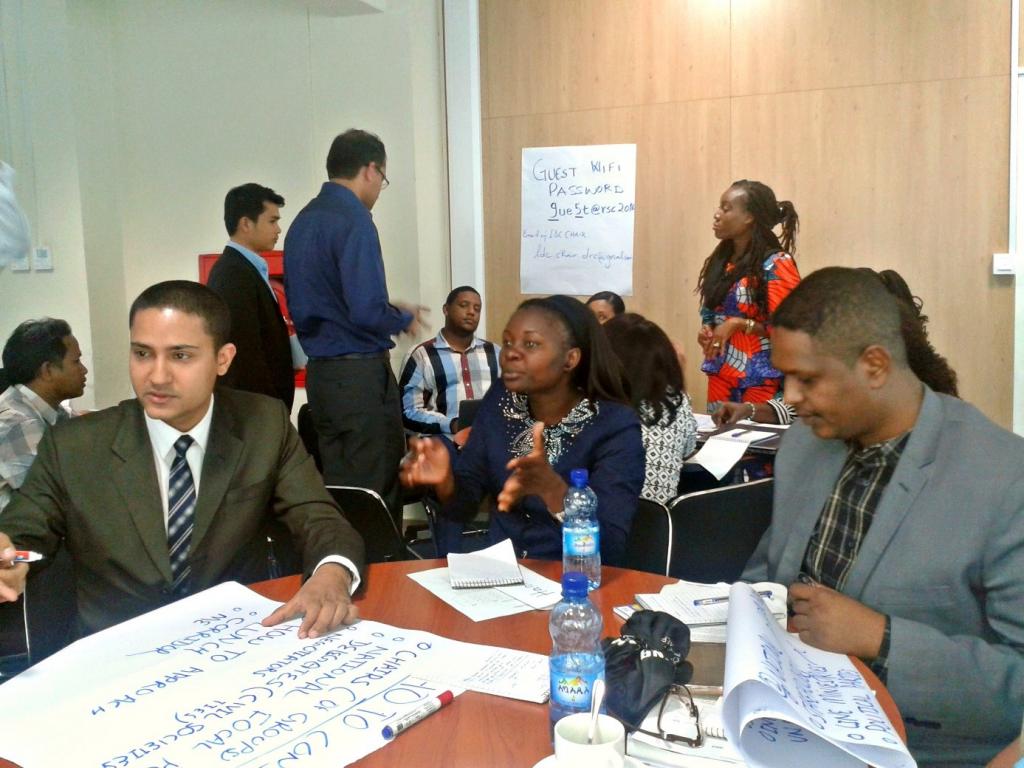Climate Change Negotiation Skills: Training for LDC Negotiators
04 July 2016, Addis Ababa, Ethiopia - Representatives from more than 40 Least Developed Countries (LDCs) from Africa, Asia and the Pacific (17 Francophone and 30 Anglophone) participated last week in a training event on climate change negotiation skills.
LDCs face severe socio-economic and environmental problems that create a substantial burden for sustainable development. Climate change and variability will continue to exacerbate these problems. UNFCCC’s parties have committed themselves to considering the special needs and concerns of LDCs regarding the adverse effect of climate change, such as the removal of obstacles that LDCs face in the process of engaging in effective inter-governmental climate change negotiation processes.

This training has been designed by UNITAR as part of a broader UNDP-UNEP global programme to build capacity of LDCs to effectively participate in intergovernmental climate change processes. The programme began in July 2014 and runs until December 2016. It is funded through the Least Developed Countries Fund of the Global Environment Facility (LDCF-GEF).
The training was organized in collaboration with UNDP, UNEP and IIED, and built on the ongoing coordination with the LDC Chair within the UNFCCC, Mr. Tosi Mpanu-Mpanu. Through this initiative, in last year, UNITAR provided training to the LDCs – both senior and emerging negotiators in the run-up to Paris COP 21.

The overall objective of the Addis Ababa’s training was to strengthen LDC negotiators’ understanding of the mechanics of the negotiating process within the UNFCCC and to effectively support LDCs delegations on the main issues which are contributing to the entry into force of the Paris Agreement by 2020 which aim at limit the global temperature increase to 1.5 degrees Celsius above pre-industrial levels.
The training focused on the development of specific negotiation skills and the techniques to best use these skills to foster national objectives as well as those of the wider LDC group.

Specific interactive sessions based on adult-learning techniques were organized to facilitate the understanding of the complexity of multilateral negotiations within the UNFCCC and implications of the Paris Agreement for the LDCs as well as key negotiation terminology and techniques to manage effective communication and conflicts that arise during multilateral negotiations.

The training was organized into Francophone and Anglophone sessions to encourage effective learning and regional experience sharing, but also included a joint session for both language groups that was steered by the LDC Chair.
The intention was not only to build individual capacities of emerging negotiators, but also to strengthen the coordination and cooperation among the LDCs, to ensure that their voices will have a greater collective impact on future global negotiations.

Photo 1: Francophone negotiators during the first sessions of the training held in French.
Photo 2: The joint Anglophone-Francophone group of negotiators explore the complexity of multilateral negotiations within the UNFCCC and implications of the Paris Agreement for the LDCs.
Photo 3: Participants identifies the right steps to take for an efficient and effective preparation for the negotiations.
Photo 4: Group work on communication and conflict management during multi-lateral negotiations.
Photo 5: Group photo with Anglophone and Francophone participants.

